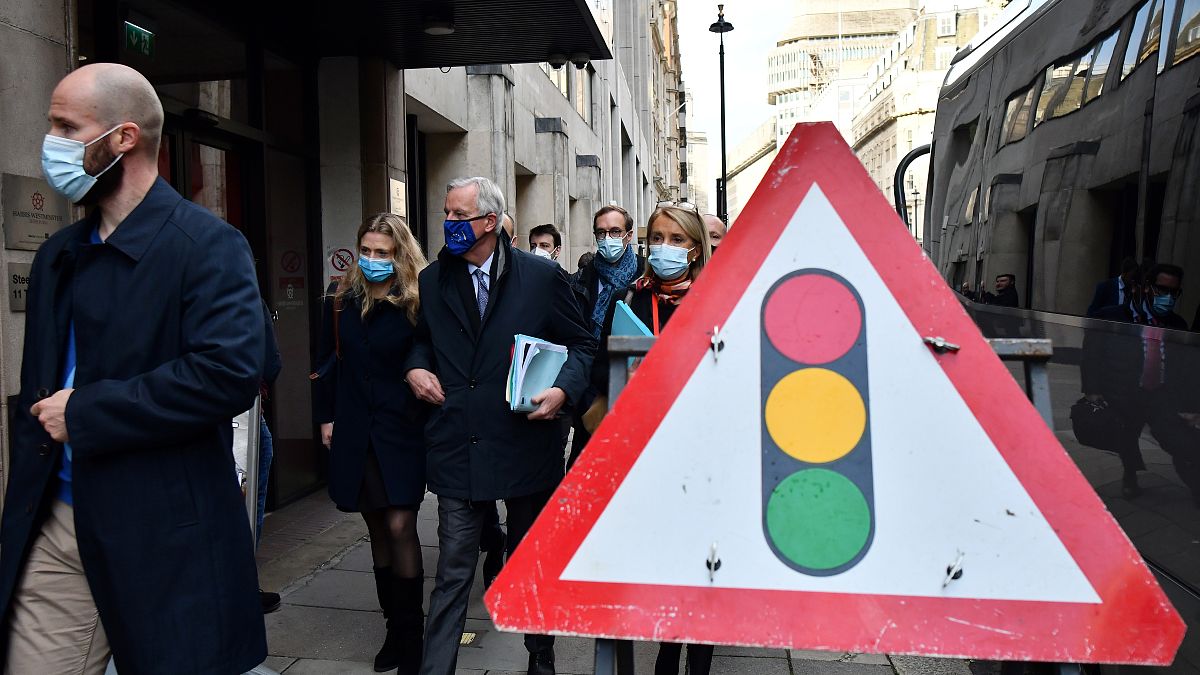EU and UK negotiators agree that "divergences remain" on core issues after two weeks of intense talks behind closed doors.
For the UK they are "wide", for the EU they are "very serious". But both sides' chief negotiators have agreed that "divergences remain" on key issues after the end of the latest, intense, bout of behind-closed-doors negotiations.
Their latest remarks have dampened hopes that a breakthrough could be close, following a fortnight of talks amid a near-total media blackout.
London and Brussels have been struggling to reach agreement on ensuring fairness in future competition, fishing rights and an enforcement mechanism.
A deal on trade and the future EU-UK relationship must be found allowing enough time for its ratification by both British and European parliaments ahead of the December 31 deadline, when the post-Brexit transition period expires.
Following the recent talks in Brussels, negotiations are due to resume in London in the coming days.
Brussels' chief negotiator Michel Barnier, leading the talks on behalf of the 27 EU nations, said on Twitter that "very serious divergences remain in Level Playing Field, Governance & Fisheries", describing them as "essential conditions for any economic partnership". Europe, he added, was "prepared for all scenarios".
His British counterpart David Frost was less pessimistic, tweeting that progress had been made. But he added: "I agree with Michel Barnier that wide divergences remain on some core issues". He said his team would continue to seek solutions that "fully respect UK sovereignty".
Earlier, on his way to briefing EU27 envoys, Barnier said "at this stage, there are still too many difficulties remaining on important topics".
The European Parliament could be a significant hurdle to an agreement being implemented, as MEPs must ratify any deal. Barnier was reportedly scathing in his assessment of the British efforts in front of key legislators.
"The list of fundamental divergences remains long," said German MEP David McAllister, the parliament's top Brexit official.
Michel Barnier's remarks cast doubt on any idea that the two sides were on their way to reaching a compromise on fishing rights, following recent reports of progress. Some reports say differences have also resurfaced in other areas, reversing previous advances.
A fortnight ago the EU negotiator said an agreement was "within reach" if both sides gave ground in an effort to resolve sticking points.
His comments at the time were seen as an olive branch, helping to bring the British back on board after Boris Johnson's government vowed to act on its threat to walk away unless the EU fundamentally changed tack.
The UK is seeking a free trade deal with maximum independence from EU rules. The EU wants to protect the integrity of its projects and to ensure the UK has no unfair competitive advantage in the future.
January 1 will bring major changes regardless of any agreement on future ties, when the UK leaves the EU's trading framework. But failure to strike a deal would exacerbate bureaucracy and disruption.
Hundreds of thousands of jobs would be threatened on both sides, especially in nations close to Britain such as Ireland, France, Belgium and the Netherlands.
